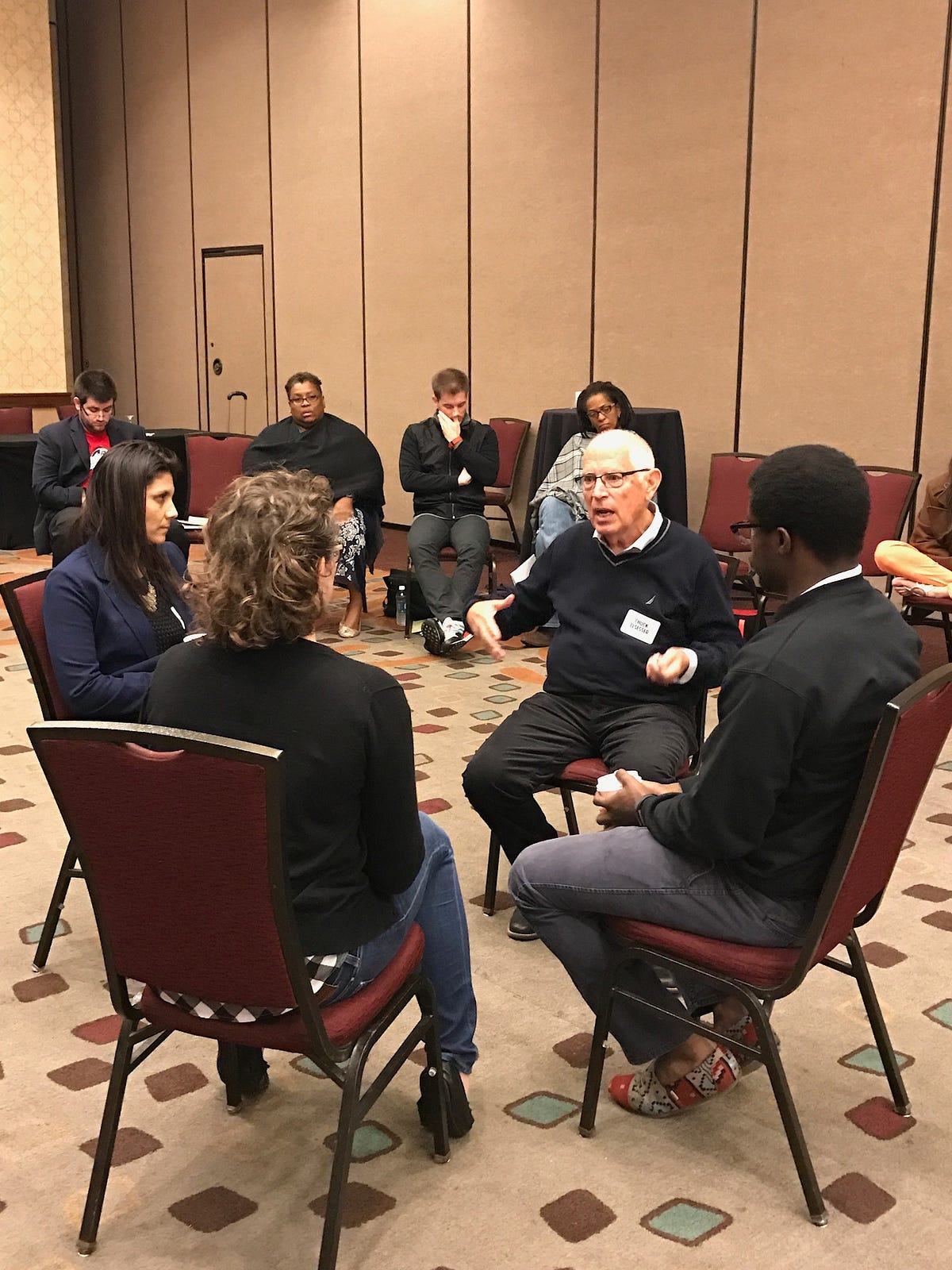Race matters in the fight against poverty in this country.
November 7, 2017
America has a long and sordid history of racism. Despite progress made during the Civil Rights Movement, and the enactment of civil rights protections affecting housing, education, and voting rights, we still live in a country in which persistent and deep racial inequality is the rule, not the exception.
One network of advocates is taking on these issues with an innovative set of approaches. Over the last four years, the Shriver Center’s Racial Justice Training Institute (RJTI) has equipped over 160 advocates from 26 states and more than 60 organizations to address race equity as an integral and essential part of anti-poverty advocacy. These advocates, now members of the RJTI Network, are using a racial justice lens and other tools and strategies to take on their communities’ unique issues and to create systemic change.
In Montgomery County, black students are suspended at 2.5 times the rate of their white counterparts; their expulsion rate is 4 times as high. In one Montgomery high school, when disability is factored in, children of color represent 75% of expulsions.
To help advocates in their state address these disparate outcomes, RJTI Fellows Patricia Jones, Sam Keen, and Marla Williams, all advocates at the Legal Aid Society of Middle Tennessee and the Cumberlands (LAS), developed a presentation for peers attending the Tennessee Alliance for Legal Services Equal Justice University. The LAS team used this presentation as a vehicle to discuss RJTI concepts like structural racialization, implicit bias, systems thinking, and mapping as race equity advocacy tools.
The night before the conference, disturbing footage from a local public school was aired on the news, featuring a Tennessee school resource officer using a taser on a young man of color.
“Our presentation gave attendees space and vocabulary to process what we all saw,” said Marla Williams. “This became part of a broader discussion of how RJTI tools can mitigate implicit bias, structural racism and other impediments to education faced by these children.”

RJTI Fellows Natalie Maxwell and Christopher Jones have helped design and launch the Florida Racial Justice Fellows program — a four-month intensive training modeled on RJTI.
Maxwell and her team introduced local advocates to RJTI tools, such as communications, framing, and — importantly — movement lawyering. Key to racial justice advocacy, movement lawyering is used to solve significant problems while building leadership and institutions within the affected community that can continue to exert power long after the campaign at-hand.
These tools are helping advocates address emerging problems, like growing fear within a local immigrant population driven by ramped up deportation efforts by the Trump Administration. Such fear can cause immigrant families and individuals to forgo crucial benefits and supports — like food assistance and healthcare — to which they are legally entitled.
“Through our Florida cohort, we are learning more about the struggles within immigrant communities and are working together to find solutions so people aren’t afraid to access community resources, such as the disaster-related services available after Hurricane Irma, or leave their house for what they need,” said Maxwell.
America’s greatest strength is its diversity.